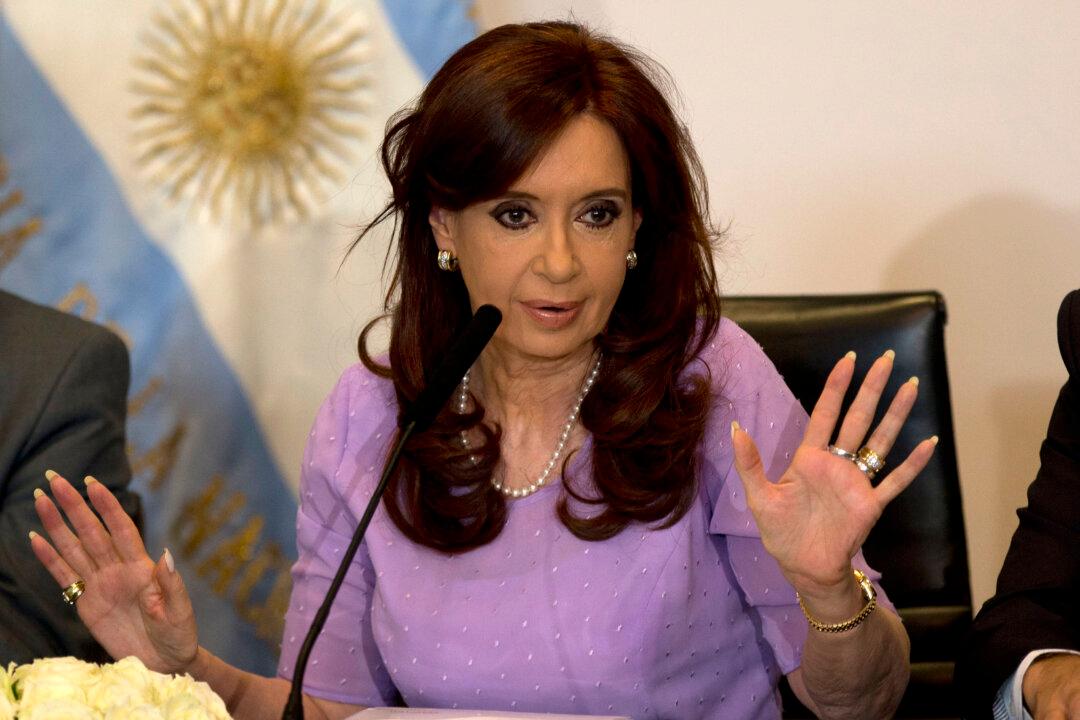BUENOS AIRES, Argentina—Cristina Fernandez isn’t on Sunday’s presidential primary ballot, yet the influence of Argentina’s leader is all around it.
The populist president known for fiery rhetoric and withering critiques of political opponents has been dictating the tempo of the campaign, buoyed by rising popularity despite a sluggish economy and a scandal that rocked her administration.
Barred from seeking a third consecutive term, she is making clear she will wield her clout through the Oct. 25 election and possibly beyond.





